What’s the Ideal Bedroom Humidity Level for Sleep? Seasons, Tips & FAQ
-
Codee Chessher
- Last updated:
Many factors impact the quality of your sleep, so it’s vital that you control your bedroom’s environment to optimize your rest. Temperature is a big one, but many people don’t know that humidity can have a huge impact on your sleep, too. In this article, we go over the ideal humidity levels for your bedroom during normal conditions, the best sleep practices during all four seasons, and how you can best combat low or high humidity in the home. The ideal humidity level in your bedroom is between 30%–50%. Anything exceeding 60% will start to affect your sleep quality. Let’s dive in as we explain further!
Ideal Bedroom Humidity Levels
The temperature in your bedroom is also a vital factor that can impact your sleep. Between 60°F–67° is generally accepted as the ideal temperature range for sleeping humans, minimizing strain on your eyes and respiratory system. Cooler temperatures help keep your body in a state of restfulness. Your body temperature decreases several degrees when sleeping, and cooler temps reduce your chances of waking up at night.
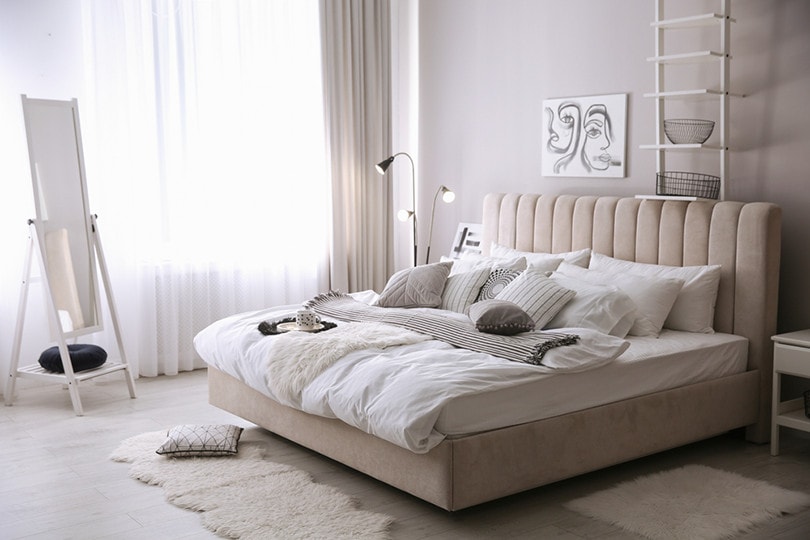
Ideal Humidity Levels in Winter
During the winter, ideal humidity levels hover between 30%–40%. Optimizing your humidity level during the cold season is crucial to staying comfortable when you sleep, and you’ll need to combat any seasonal humidity that the weather brings. However, never let the level drop below 30%. You can jack the humidity up to 45% or even 50% if you suffer very dry winters, but in most places, it’s not necessary.
Ideal Humidity Levels in Spring
Spring comes with higher humidity levels, so you should endeavor to keep your home and bedroom between 30%–45% humidity. The humidity level might not reach that number because of air from outside seeping in but aiming to keep things a little dry evens things out.
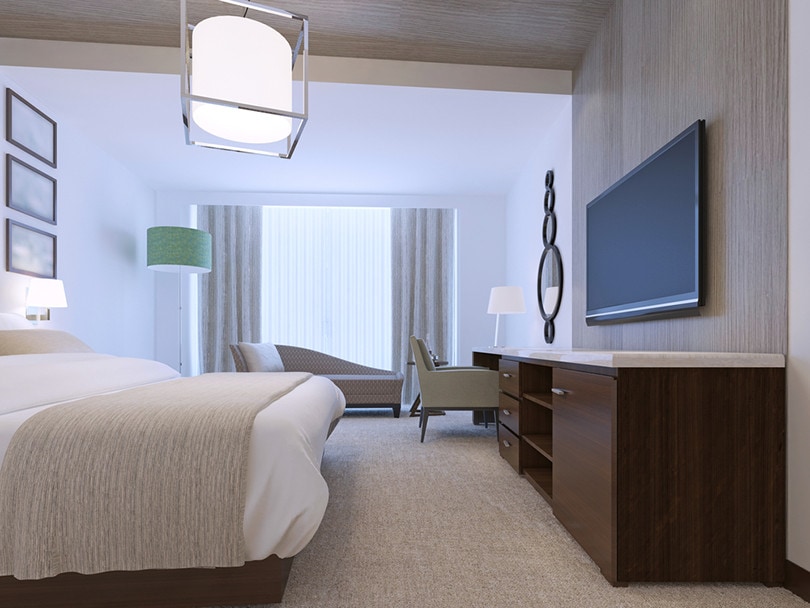
Ideal Humidity Levels in Summer
Summer is usually even more humid than spring, so try to keep ambient humidity in your home between 40%–50%. You can aim lower if it gets very, very humid, but that’s the ideal range during sweltering summertime. Turn on a dehumidifier if you live in a tropical area, which can help combat mold growth and oppressively muggy air.
Ideal Humidity Levels in Fall
The air typically dries out a bit in the fall, so aim for 35%–45% humidity. As always, you’ll need to adapt your home’s humidity level to your local climate. Drier locales may need less humidity, while more temperate zones call for more humidity.
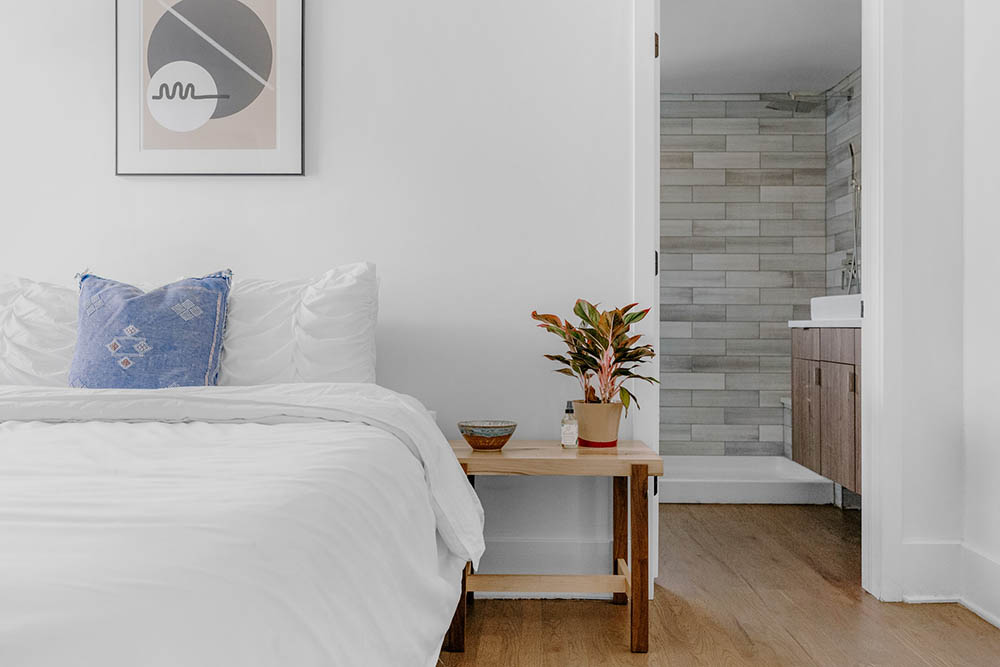
How Does Humidity Affect Sleep?
You probably know how temperature affects your sleep, but humidity is critical as well. Air that’s too dry (below 30%) or humid (exceeding 60%) can cause your sleep to suffer and even affect your health. If your rest is important to you, finding the perfect humidity level for your bedroom is one of the best things you can do.
Air that’s too dry will irritate your nose, eyes, and lungs. It also causes your skin to dry out and produce more skin oils. For people with eczema or psoriasis, it can trigger itchy and painful outbreaks. Dry air also exacerbates acne conditions, especially for people with overly dry skin. Finally, dry air causes your airways to constrict and reduces how much oxygen you breathe in.
By contrast, high humidity makes you more prone to night sweats, which can also contribute to acne. Mold and dust mites love high humidity levels, which can affect your respiratory and skin health. However, high humidity levels are known to soothe people with asthma and some other breathing conditions. For others, high humidity can increase the chances of contracting viruses and infections.
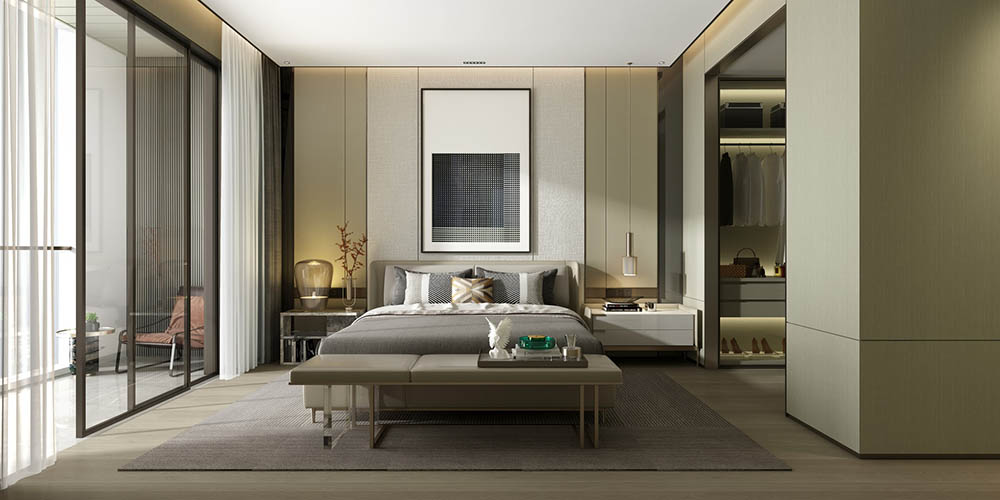
How to Improve Bedroom Humidity Levels
While dealing with dry or humid air can be difficult, there are several ways you can monitor and control the humidity level in your bedroom. The three main ways are humidistats, humidifiers, and dehumidifiers. Let’s find out when to use them and how they can help improve your sleep quality.
Humidistats
Weather broadcasts tell you the humidity outside, but many people don’t know the humidity level in their own homes. Humidistats not only tell you the level, but they hook into your home HVAC system to completely control the humidity level throughout your entire house. These don’t come cheap, but they’re the most effective way to control your home’s atmosphere and get the perfect sleep.
Humidifiers
In dry areas like the Southwestern US, a humidifier is invaluable. They’re a portable and easy-to-use option to instantly cure dry air, which soothes asthma and keeps the temperature comfortable. Most models have timers for convenience and typically allow you to use essential oils to scent the air.
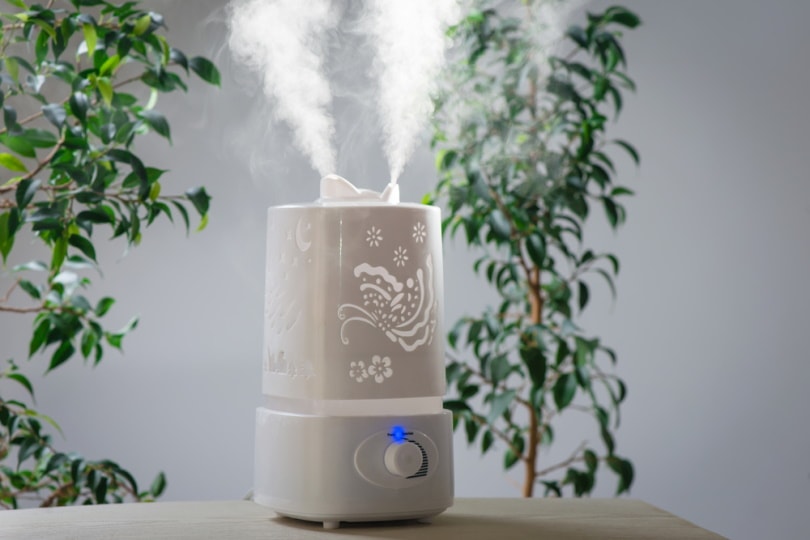
Dehumidifiers
In tropical zones, dehumidifiers are a must-have item. They use a fan to collect the moisture from the air and fill a tank that you empty from time to time. There are large-scale models for your HVAC system, but portable units are the best option for the bedroom. Dehumidifiers can be loud, but some people find they provide the ideal level of white noise for sleeping.
Frequently Asked Questions
What is absolute and relative humidity, and what do they mean for you?
Relative humidity is the type most people are familiar with, expressed as a percentage of the moisture in the air relative to what the air can hold. Absolute humidity is a more arcane measurement, showing the amount of water in grams or square meter. In the home, you’ll always be dealing with relative humidity and can safely ignore absolute humidity.
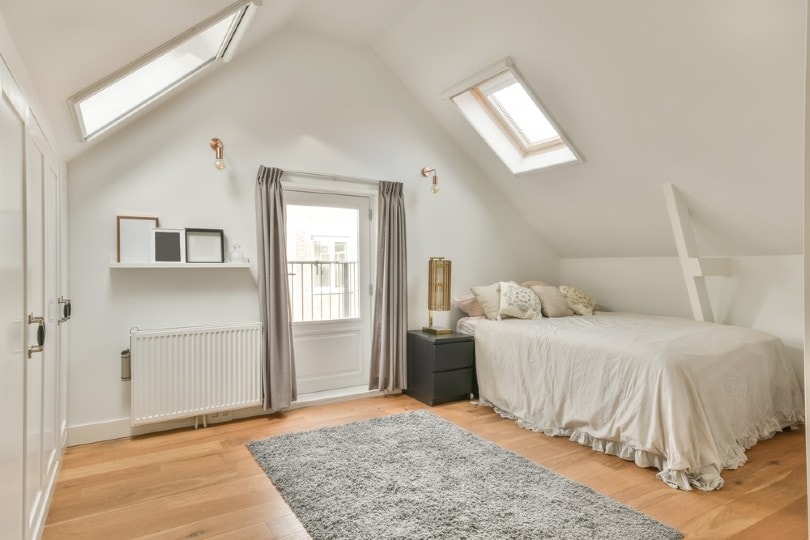
Why is my room so humid/dry?
First, you’ll have to check the seals on your windows and doors around the house. If your room is humid or dry, chances are the rest of the house is, too. Replacing old caulking and installing weather stripping for doors can help you more perfectly control the humidity level in your home. If this doesn’t quite do the trick, you can try a humidifier or dehumidifier to more precisely control the humidity in your bedroom while you sleep.
How do heaters affect the humidity in the bedroom?
Most conventional electric space heaters will evaporate moisture from the air, drying a room’s air out. This may be desirable if you experience humid winters, but bad if you have dry winters. If you run a space heater while you sleep, consider investing in an infrared heater that heats objects directly without affecting the humidity level.
Conclusion
Humidity is a crucial part of your sleep, helping your body rest more comfortably. It’s important to have your home humidity set to between 30%–50%, changing it slightly between the seasons. Regardless of your local climate, keeping the humidity regulated will prevent health problems and help you wake up more rested.
Featured Image Credit: Pixel-Shot, Shutterstock
Contents
